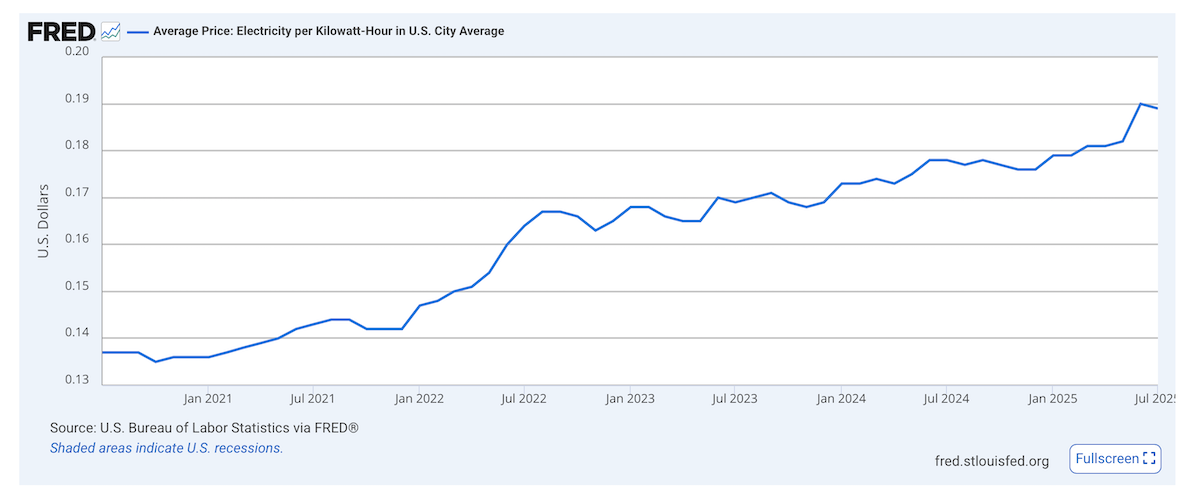Donald Trump promised cheaper eggs; still no cheaper eggs.
Trump promised cheaper energy:
“My goal will be to cut your energy costs in half within 12 months after taking office,” former President Donald Trump said in a speech in Michigan last Thursday. “We can do that” [Garrett Haake and J.J. McCorvey, “Trump Vows to Halve Energy Costs in 12 Months. Few See That Happening,” NBC News, 2024.09.04].
With five months to go on that promise, and Trump hasn’t lowered electricity costs to anything close to the levels of Clinton/Bush days.

The trendline through Trump’s first seven months would have electricity costs 14% higher by January 2026 than they were when he took office.
And Trump’s policies against wind and solar power will only push energy costs higher:
Cutting off wind and solar by exacerbating permitting challenges, cutting federal incentives, and revoking federal leases won’t help the US meet the moment.
This will hit consumers — already suffering from higher prices — pretty hard. The Rhodium Group predicts the average household will pay between $78 and $192 more annually. It’ll be a much bigger challenge for lower-income consumers who don’t have as much disposable income and can’t afford higher monthly utility bills [Patrick Sisson, “Trump Says His Policies Will Lead to ‘Energy Dominance.’ Experts Say Electricity Is Going to Get More Expensive,” Sherwood, 2025.08.15].
…and stretch family budgets and sandbag economic growth:
Take a low-income renter, for example. In addition to likely higher energy costs, the administration wants to cancel the Low Income Home Energy Assistance Program, or LIHEAP, which provides emergency heating and cooling assistance to 6.7 million households, as well as rescind recent appliance energy efficiency updates and wind down Energy Star, a program that has saved consumers over $500 billion since inception through more efficient appliances. All of this makes it more likely that apartment dwellers will pay more for energy over time.
“There’s a debilitating impact skyrocketing utility bills can have on a family,” [Citizens Utility Board spokesman Jim] Chilsen said. “When you’re pouring all of your money into higher and higher utility bills, you have less money to pay for necessities like food, rent, and medicine, but also less money to help spark the economy” [Sisson, 2025.08.15].
Experts and facts agree: when Trump promises something, expect the opposite.